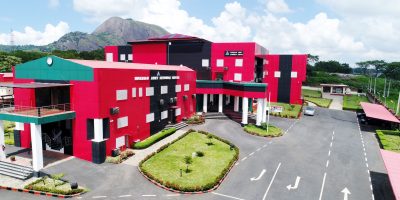NARC SENIOR RESEARCH FELLOWS AND SUBJECT EXPERTS MAKE PRESENTATIONS
Nigerian Army Resource Centre (NARC) Weekly Subject Experts’ Presentation was held at Hall C, TY Buratai Block, and Abuja. There were two presentations made by the Subject Experts for China, and South Africa.
The first Presentation by Maj Gen JA Orokpo (Rtd) subject expert China. His presentation Center on six people arrested in china over baby-trafficking ring. Six people are reported on 13 Nov 23 to have been arrested in Central China’s Hubei Province over alleged involvement in a baby-trafficking ring linked to a hospital in one of the province’s biggest cities. The allegations about Xiangyang Jianqiao hospital first came to light on 6 Nov 23 via a Weibo user, Mr Shangguan Zhengyi, who described himself as an anti-trafficking volunteer. Mr Shangguan posted a series of claims about the hospital’s director, Dr Ye Youzhi, whom he accused of colluding with online intermediaries to sell birth certificates for 96,000 Yuan, (£10,750). After selling the birth certificate, the hospital would follow the normal registration process for new babies, including issuing vaccination booklets and assisting with household registration requirements. He said that a baby girl was sold in September for 118,000 Yuan and later registered in Sichuan Province. It is not clear how many babies are believed to have been trafficked through the hospital. Apart from the 6 people who have been formally arrested, 4 other suspects have been detained without charge.
In his analysis and Lessons for Nigeria Gen JA Orokpo (Rtd) stated that In Nigeria, the prevailing baby trafficking phenomenon is the proliferation of Baby-factories. It is variously described as baby farming’ or ‘baby harvesting. Its existence came into limelight when Ben Ezinma drew the attention of Abia State Government to the sale of babies by some unscrupulous persons. Overtime, the baby factories operators recruit and camp pregnant girls in their facilities. Sometimes, the girls who were not pregnant upon their arrival at the baby-factory were forcibly held for extended periods and repeatedly impregnated by young men, also recruited by the operators. Some other girls are lured into such factories by operators or their agents usually with false promises of jobs or safe abortions.
He recommended that federal government of Nigeria through the Ministry of Education to integrate educational programmes into schools to raise awareness about dangers of baby factories and also Liaise with State Governments to foster community involvement in preventing and reporting suspicious baby-factories.
The second Presentation by Col OR Akerele (Rtd) subject expert for South Africa. His presentation focused on Compliance with labour laws or risk prosecutions. Compliance refers to the ways in which a state maintains order or conformity with a set of rules or regulations to ensure that a business is conducted within legal parameters or organization. The South African Department of Employment has warned that businesses who do not comply with the country’s labour laws could face prosecution. On 15 November 2023, inspectors from the Department, led by the Inspector General Aggy Moiloa visited the Southern Sun Hotels in Gauteng to access the Hotels Level of Compliance with the country’s labour laws. The visit was necessitated by the destruction of a section of the Southern Sun Hotel by hailstorm on Monday 13 November 2023 which resulted in the temporary closure of the hotel. Specifically, emphasis was on occupational health and Safety of workers to ensure safety of employees and customers. Compliance with labour laws is among other objectives to grant employees a right to employment contract bothering on do’s and don’ts while at work, privileges, leaves and remunerations.
In his analysis and Lessons for Nigeria Col OR Akerele (Rtd) stated Nigeria has made significant strides in improving the ease of doing business by creating a conducive environment for businesses to thrive and conducting scheduled or random inspections to ensure compliance with the nations labour laws for both foreign and local businesses. It is however necessary for other stakeholders within the business environment to evolve policies and actions to simplify the conduct of businesses for maximum benefits. The present version of the Nigeria Labour Act was put in place in 2004. This Act form the basis for all labour practices in Nigeria. Currently, there are three important compliance regulations which must be strictly adhered for any businesses to thrive.
He recommended that the federal government of Nigeria through the Ministry of Labour and productivity should immediately review the Nigeria Labour Act 2004 with emphasis on compliance with labour laws and prosecution of offenders and also the Nigerian Immigration Service should review the immigration status of foreign national operating businesses in Nigeria.






